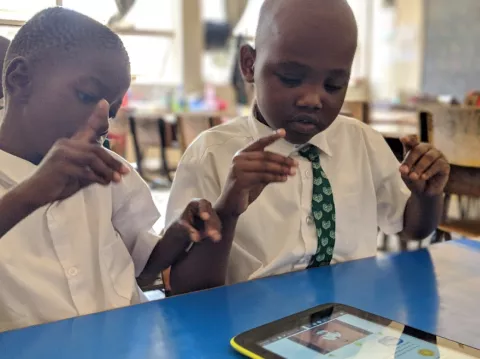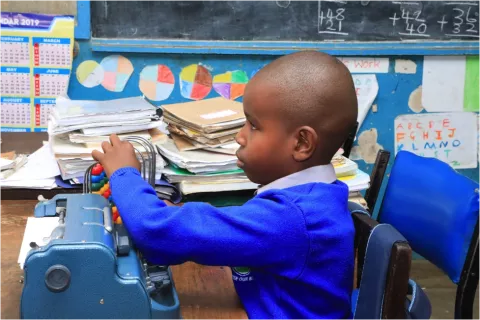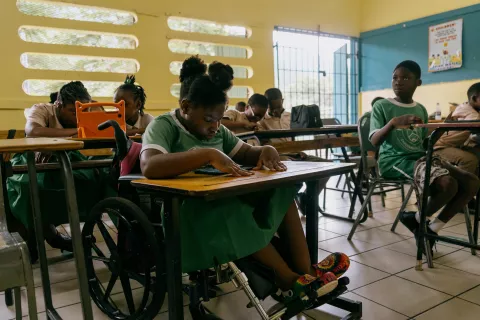Kenya Pilot - Human Interest Story Part 2
Making digital learning accessible for learners with Intellectual Disability
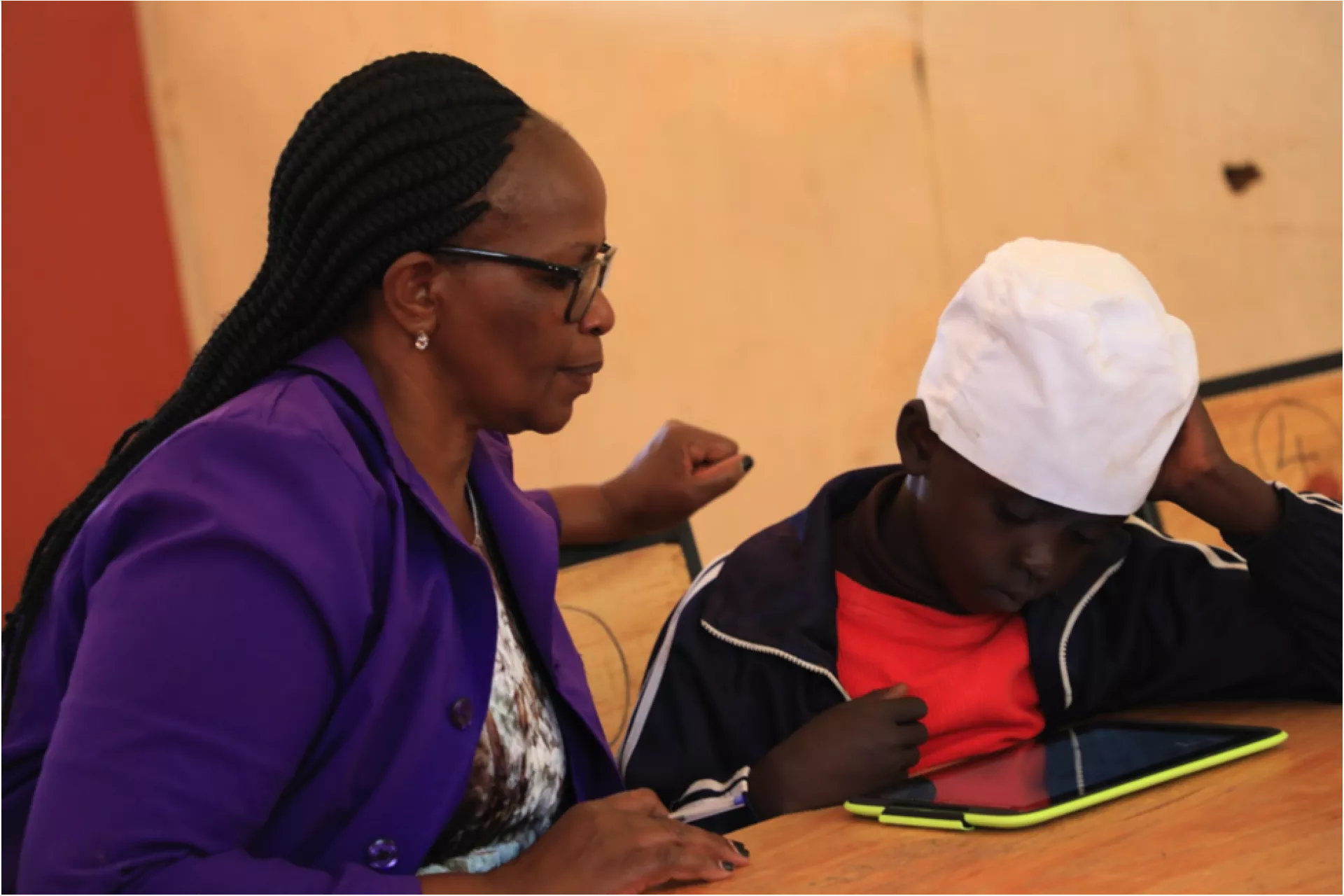
- Available in:
- English
- Español
Making digital learning accessible for learners with Intellectual Disability
“This is the first time most of the learners here are interacting with a digital device. It may be difficult to determine their exact level of engagement today, but we are hopeful as teachers. I have seen bright learners with intellectual disabilities. They need more time and more support to learn.” These are the words of Jane Njoroge, the Senior Teacher at Mugumoini Primary School in Thika, a town north of Kenya’s capital of Nairobi. She is trained in teaching children with disabilities, specifically those with autism.
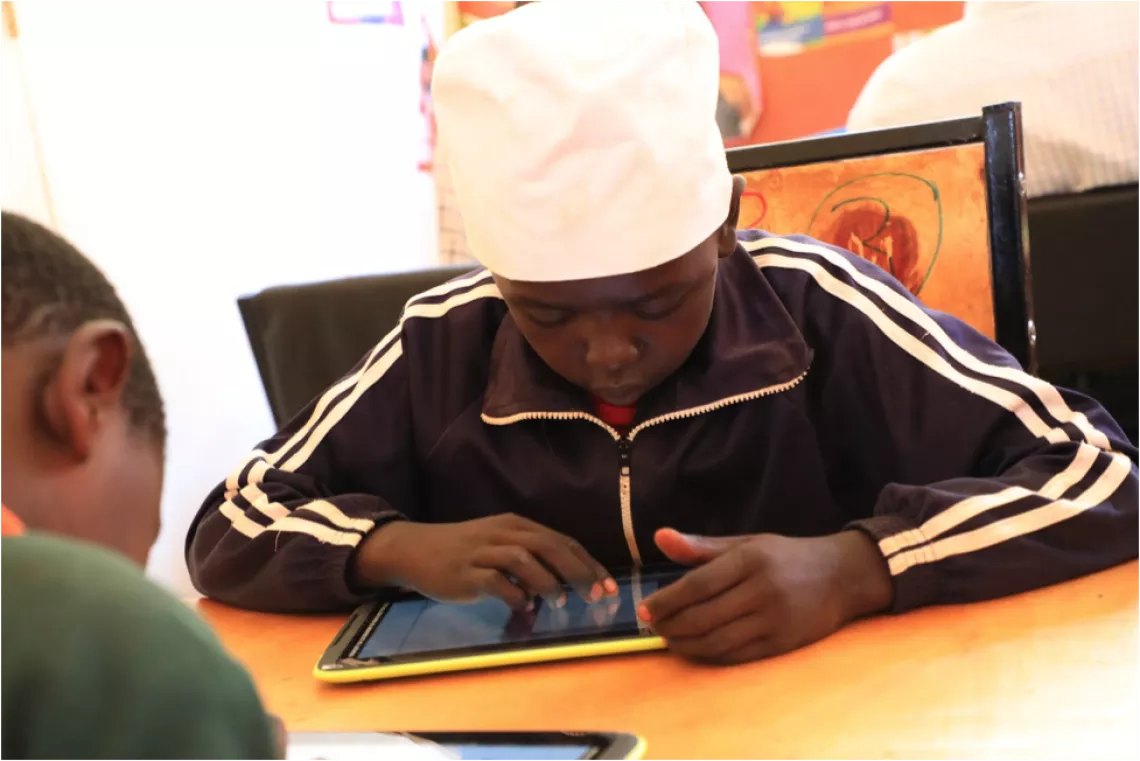
Some learners with autism have challenges such as expressing themselves verbally. Early identification and assessment for learners with autism is critical. When support and intervention are given from an early age, the development of speech acquisition can be achieved. From the explanation by the teachers at Mugumoini Primary School, some learners with autism have challenges managing their emotions, and hence it is important for caregivers and teachers to learn how to work with them. This goes hand in hand with what these learners eat as diet, as for instance food containing gluten may trigger hyperactivity in some children.
He laughs as he hears the children sing, “Rain, rain, go away, come again another day.” Eleven-year-old Frank Murigi appears excited to use the newly installed digital accessible textbook in the tablet despite not having used it before. For Frank, his way of learning is through stimulation and simplified text. “Learners learn at their own pace depending on when they were first exposed to school,” Mrs. Njoroge explains.
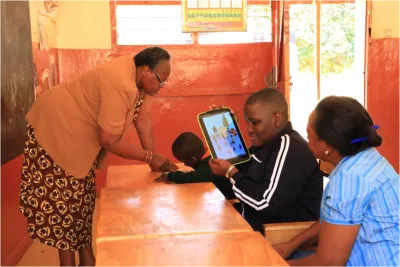
Mugumoini Primary School works with the philosophy of including learners with autism in mainstream classrooms together with their peers without autism. However, the challenge of how mainstream teachers can appropriately accommodate these learners remains. Due to inadequate training for teachers as well as availability of accessible learning materials, learners with autism like Frank face difficulties in being part of a mainstream classroom.
The situation was different with 13-year-old Collins Mwenda, who was quite independent in navigating the digital accessible textbook. Unlike Frank, Collins has been exposed to a digital device at home. As a result, his teacher, Jane, has noted that he has a keen interest in photos, sound and animation.
Three other learners have also had the opportunity to interact with the digital accessible textbook during the ongoing piloting phase. Seven-year-old Stella Njeri, 10-year-old Tracy Wairimu and seven-year-old Josephat Kimari were curious and excited about the textbook, but they needed more time for the teachers to determine how they would learn. Josephat kept holding the tablet upside down because he does not yet have reading ability.
Their other teacher, Bancy Gatimu recommended that the textbook be adapted according to the abilities and needs of the learners. This is a reiteration of the recommendation given in the Sector Policy for Learners and Trainees with Disabilities. For learners with autism who interacted with the digital accessible textbook in Mugumoini Primary School, digital pictures and animations drew most of the attention and interest of the learners.
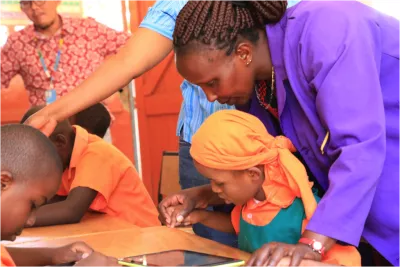
“Learners learn at their own pace depending on when they were first exposed to school.”

